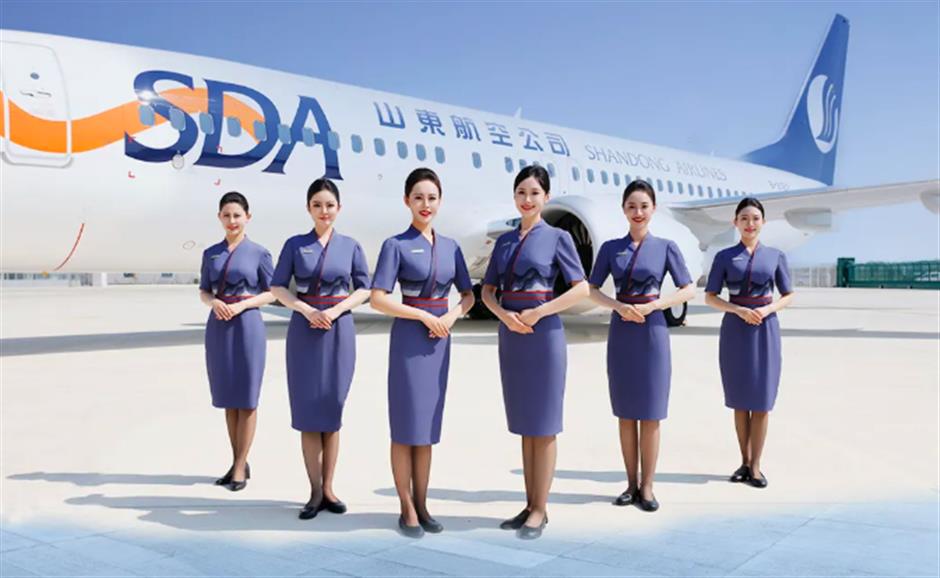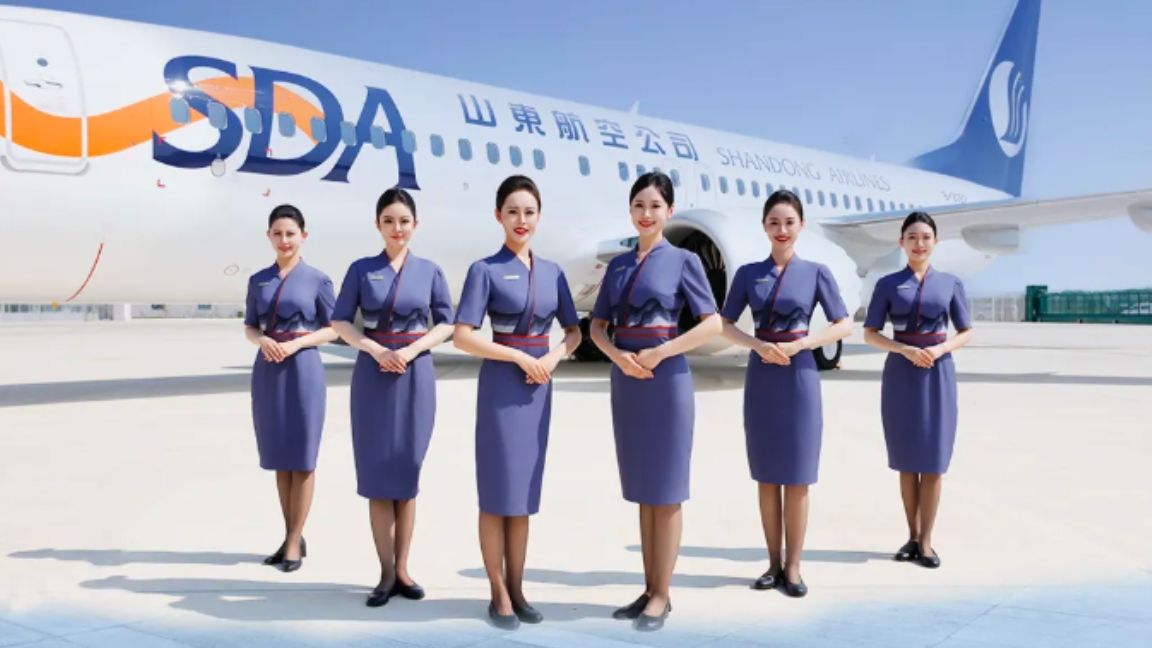
Picture a group of stewardesses in high heels and short skirts pitter-pattering in small steps beside you as you saunter or stride toward your boarding gate at an airport.
You may appreciate the glamor and elegance of these flight attendants dressed in professional uniforms, but has it ever occurred to you that, given long hours at work, they may feel quite uncomfortable wearing such uniforms, especially those shoes with steeply raised heels?
"Why do we have to wear short skirts, silk socks and high heels in such a complicated high-altitude work environment? Why can't we simply wear trousers?" asked Xi Ha, a talk show actress, in a widely circulated program broadcast in early July. Xi Ha is the stage name of the actress who used to be a stewardess.
"I once asked my instructor why we couldn't wear trousers, and she replied that some passengers might feel uncomfortable if we wore trousers," she recalled.
The instructor's bittersweet answer brings home to us a longtime dilemma in the world's air travel industry: The need to exhibit the feminine beauty of flight attendants with short skirts, silk socks and high heels often compromises their work efficiency and personal comfort.
"In a fire emergency, the last step of evacuation is that all flight attendants take off their silk socks, because these socks can burn easily in such a situation," Xi Ha said in her July talk show. "But, why do we wear silk socks in the first place, now that we know they are dangerous?"
Xi Ha told a real story: A chief flight attendant – a friend of hers – once successfully evacuated all the passengers within 90 seconds, but could not prevent herself from suffering injuries. Why? Because she had to take off her silk socks before escaping on a plane slide. Her legs were badly bruised.
"Had she worn a pair of trousers, she would not have been so badly hurt," Xi Ha claimed.
Raising public awareness
Her talk show quickly became an Internet sensation, raising public awareness about the dilemma facing many flight attendants.
"I would not give in to undesirable moral constraints," Xi Ha said after the talk show. "I will try all I can to find the best solution for now."
Toward the end of July, Shandong Airlines announced new uniforms for its flight attendants, allowing them to choose between skirts and trousers. In addition, flats would replace high heels.

Shandong Airlines' new uniforms for flight attendants
I would not venture to say Shandong Airlines' decision resulted from Xi Ha's highly publicized comment of what she called "undesirable moral bondage" in the form of rigid uniform requirement. In fact, some other domestic airlines had already replaced high heels with flat shoes before Xi Ha's program.
And China's latest regulation on cabin operation and management, released at the end of last year, has made it clear that flight attendants should not wear high heels during the period from aircraft taxiing (before takeoff) and landing (before all passengers get off).
Xi Ha's talk show, though not necessarily a direct cause of the latest rounds of uniform changes, is no doubt the culmination of public debates that have surged over the past year about the former rigid requirement. Many passengers had even submitted suggestions to different airlines with handwritten messages, calling for a more reasonable uniform system that puts safety and comfort first.
CCTV, China's Central Television, published a piece of commentary on July 13, saying Xi Ha's talk show is not just a personal expression, but more importantly, a proof of gradual changes in social psychology and vocational principles.
The commentary concluded that letting flight attendants take off their high heels will serve to explore and pioneer a new route for all those working in the service industry who are constrained by old (and undesirable) rules one way or another.
Indeed, skirts and high heels can date back to the early days of the global civil aviation industry, especially to the 1930s when the world's first flight attendants appeared. And over time, skirts, high heels and, for that matter silk socks, seemed to have been accepted as "unmistakable tokens" of flight attendants across the world for many decades, though the discomfort and hazards they might cause had been obvious.
Now many airlines across the world no longer require their flight attendants to wear high heels or skirts, and China is also making substantial progress in this regard.
My hope: Although Chinese airlines did not do away with the old uniform requirement much earlier, enlightened public debates like Xi Ha's talk show will help China take the lead in designing safety- and comfort-oriented professional uniforms in the future that may set an example of how to make the world a better place for everyone.

